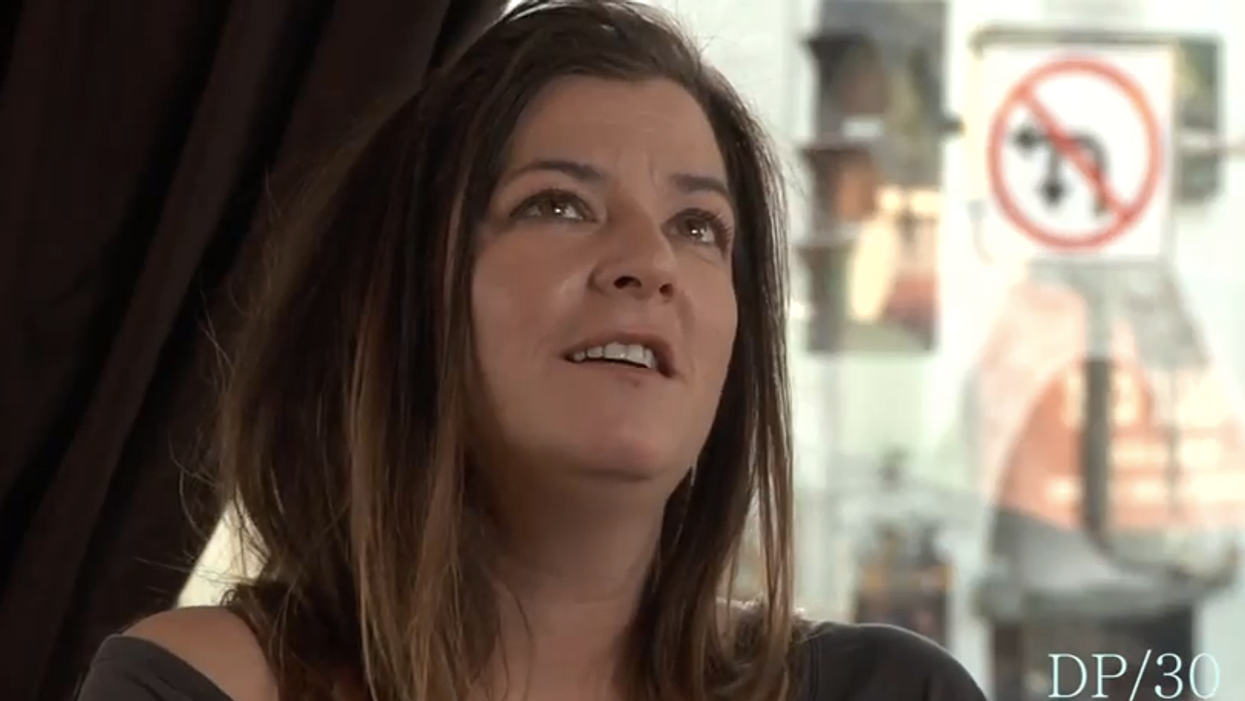Director Lynne Ramsay on Struggles for Creative Control: 'The Politics I Hate, the Filmmaking I Love'

With news surfacing a few days ago about Lynne Ramsay's mysterious 'no-show' on the set of her first gig as a director-for-hire Jane Got A Gun, many media outlets are reporting it as 'irresponsible' behavior. Speculation abounds. The 'feminist western' with Natalie Portman did not shoot as planned last Monday, leaving a crew of 150 wondering why they didn't have a director and resulting in sending 175 extras home on the first day. Lynne had reportedly been having a feud with producer Scott Steindorff over the privilege of the all-important final cut. In the wake of this news that could either be interpreted as a middle finger to Hollywood or an artist's attempt to grasp the ideal, it's interesting to revisit this recently-published 2011 interview from DP/30, below:
Jane Got A Gun would have been Ramsay's first effort in which she had no hand in writing. Interestingly, the script, written by Brian Duffield, came from the 2011 Black List, an industry list of the best unproduced screenplays. Ramsay has made no public statement, but is reported to not have received a final shooting script, budget, or schedule mere days before the first day was to start, and was under a caveat for final cut, stating that she could lose final cut privileges if the film went over budget or over schedule.
From the Guardian:
Hollywood's a lonely place, she'd been in control all the way, but the last week of pre-production became a series of calamities for a film-maker as precise and visionary as Lynne. It's a shame to think Hollywood can't accommodate a talent like hers, but maybe she was naive to think it wouldn't be a rough ride.
Also worth noting is that Jane Got A Gun is defined as an 'independent film,' but it always leads me to consider the ever-changing definition of independent. The scrutiny that comes with an Oscar-winning actor and a 15 million dollar budget being produced in Los Angeles can create an atmosphere that feels a little like the old west itself -- only instead of a hail of gunfire, it's a media feeding frenzy. Call me selfish, but Lynne Ramsay is one of my favorite living directors and I just hope this doesn't adversely affect her highly anticipated Sci-fi Moby Dick.
Easier to blame a rising female director than take a look at the red-tape of big-budget films? Perhaps. Ramsay also left the hot seat for an adaptation of The Lovely Bones in 2004 due to conflicts within the producer-director relationship. We've seen how things can go when producers and directors bump heads, from Terry Gilliam's Brazil to Kenneth Lonergan's Margaret, it seems to be an inevitable part of the business. Many will praise Ramsay for holding on to her artistic integrity, while others will demonize her for abandoning a job when work is scarce. As she says in the above interview: "The women are not soft in Glasgow."
Is this a case of an irresponsible director, or a broken system? What would you do in this situation? Would you abandoned a production if the project started going in a direction you were uncomfortable with?











